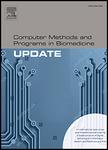版权所有:内蒙古大学图书馆 技术提供:维普资讯• 智图
内蒙古自治区呼和浩特市赛罕区大学西街235号 邮编: 010021

作者机构:Division of Information and Computing Technology College of Science and Engineering Hamad Bin Khalifa University Doha Qatar Centre for Health Informatics Australian Institute of Health Innovation Faculty of Medicine Health and Human Sciences Macquarie University Sydney Australia Mental Health Services Hamad Medical Corporation Qatar
出 版 物:《Computer Methods and Programs in Biomedicine Update》 (Comput. Methods Programs Biomed. Update)
年 卷 期:2021年第1卷
主 题:”Anxiety” ”Chatbots” ”COVID-19” ”Depression” ”Pandemics”
摘 要:Background: Anxiety and depression rates are at an all-time high. Smartphone-based mental health chatbots can aid psychiatrists replacing some of the costly human based interaction providing a unique opportunity to expand the availability and quality of mental health intervention whilst providing an alternative approach to fill the much-needed self-care gap. Objective: Assess the quality and characteristics of chatbots for anxiety and depression available on Android and iOS systems. Methods: A search was performed in the App Store and Google Play Store following the Preferred Reporting Items for Systematic reviews and Meta-Analysis (PRISMA) protocol to identify existing chatbot apps for anxiety and depression. Eligibility was assessed by two individuals based on predefined eligibility criteria. Meta-data of the included chatbots and their characteristics were extracted from their description and post-installation by two reviewers. Information on quality was assessed by following the mHONcode principles. Results: Only a handful (n=11) of chatbots were included from an initial search of 1000 that provide a substitute for human-human based interaction and clearly had a therapeutic human substitute goal in mind. The majority of reviewed apps had a high number of downloads indicating their popularity. The apps were also of a general high quality based on our assessment according to the mHONcode principles. Conclusion: The general popularity of apps reviewed, and results of our quality assessment indicate chatbots have a promising future within the realm of anxiety and depression. Anxiety and depression chatbot apps have the potential to increase the capacity of mental health self-care providing much needed low-cost assistance to professionals. © 2021